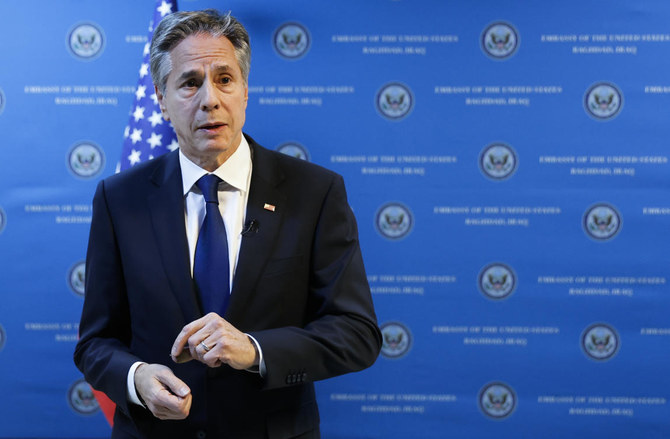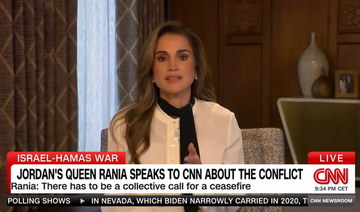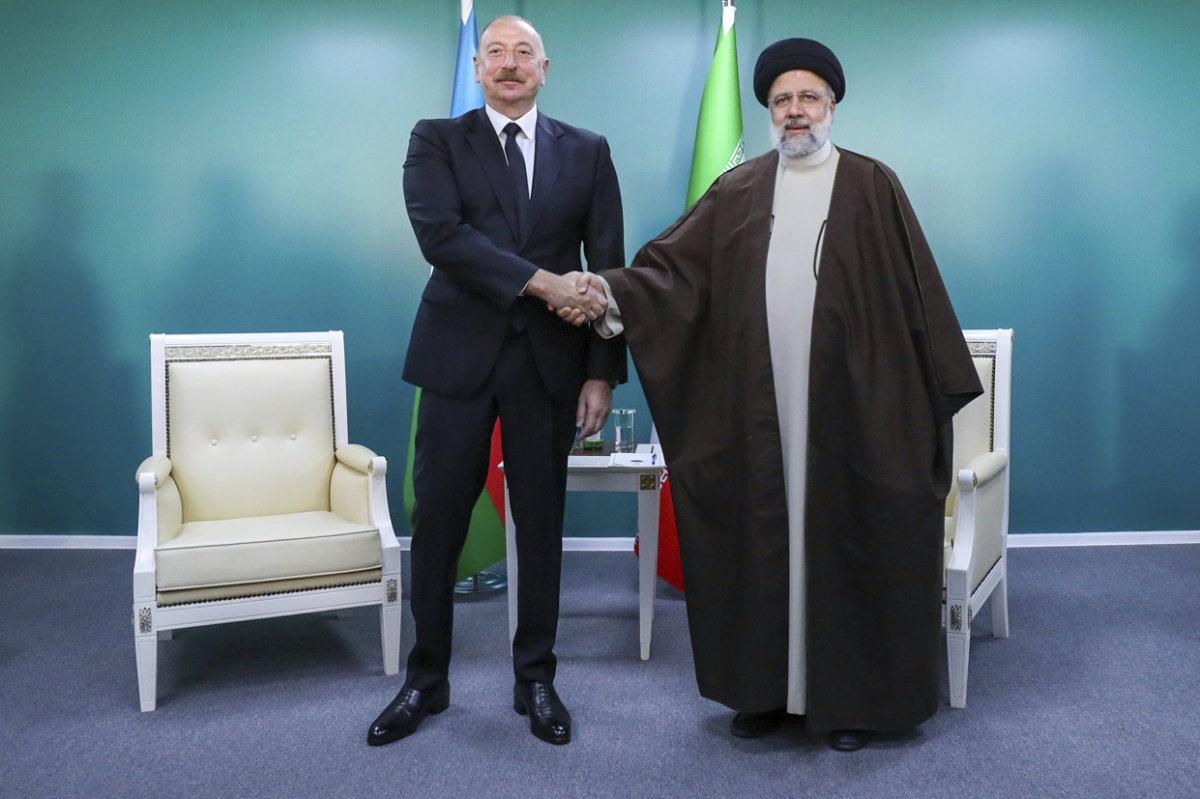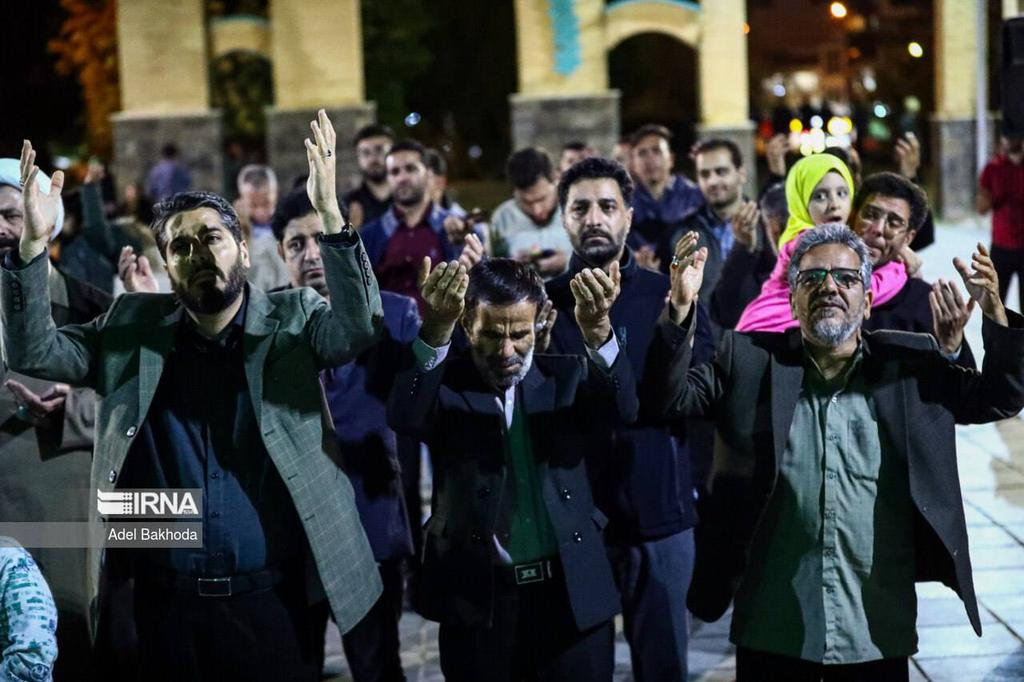Blinken wraps up frantic Middle East tour with tepid, if any, support for pauses in Gaza fighting
ANKARA: US Secretary of State Antony Blinken was wrapping up a grueling Middle East diplomatic tour on Monday in Turkiye after only limited success in his furious efforts to forge a regional consensus on how best to ease civilian suffering in Gaza as Israel intensifies its war against Hamas.
Blinken met in the Turkish capital of Ankara with Foreign Minister Hakan Fidan after a frantic weekend of travel that took him from Israel to Jordan, the occupied West Bank, Cyprus and Iraq to build support for the Biden administration’s proposal for “humanitarian pauses” to Israel’s relentless military campaign in Gaza.
Blinken’s shuttle diplomacy came as Israeli troops surrounded Gaza City and cut off the northern part of the besieged Hamas-ruled territory. Troops are expected to enter the city Monday or Tuesday, and are likely to face militants fighting street by street using a vast network of tunnels. Casualties will likely rise on both sides in the month-old war, which has already killed more than 9,700 Palestinians.
The top US diplomat hopes that pauses in the war would allow for a surge of humanitarian aid to Gaza and the release of hostages captured by Hamas during the militants’ deadly Oct. 7 incursion into southern Israel that killed more than 1,400 people, mostly civilians — while also preventing the conflict from spreading regionally.
Neither Blinken nor Fidan spoke as they posed for photographers ahead of their formal talks in Ankara. The top US diplomat was not going to meet with Turkish President Recep Tayyep Erdogan who has been highly critical of Israeli Prime Minister Benjamin Netanyahu and an outlier among NATO allies in not expressing full support for Israel’s ‘right to defend itself’.
Outside the Foreign Ministry, dozens of protesters from an Islamist group carried Turkish and Palestinian flags and held up anti-US and anti-Israel placards as the Blinken-Fidan meeting got underway. Earlier Monday, police dispersed a group of students marching toward the ministry chanting “murderer Blinken, get out of Turkiye!”
It was the second day of protests denouncing Blinken’s visit. On Sunday, pro-Palestinian protesters clashed with Turkish riot police outside the US-Turkish Incirlik military air base in the southern city of Adana. Police fired tear gas and water cannon as the demonstrators tried to cross fields to enter the base.
Several hundreds also marched to the US Embassy in Ankara on Sunday, chanting “God is great.”
Blinken’s mission, his second to the region since the war began, has found only tepid, if any, support for his efforts to contain the fallout from the conflict. Israel has rejected the idea of pauses while Arab and Muslim nations are instead demanding an immediate cease-fire as the casualty toll soars among Palestinian civilians- mostly children under Israeli bombardments of Gaza.
USofficials are seeking to convince Israel of the strategic importance of respecting the laws of war by protecting non-combatants and significantly boosting deliveries of humanitarian aid to Gaza’s beleaguered civilian population.
It remained unclear, however, if Netanyahu would agree to temporary, rolling pauses in the massive operation to eradicate Hamas — or whether outrage among Palestinians and their supporters could be assuaged if he did.
Already Jordan and Turkiye have recalled their ambassadors to Israel to protest its tactics and the tide of international opinion appears to be turning from sympathy toward Israel to revulsion as images of death and destruction in Gaza spread around the world.
On Saturday in the Jordanian capital of Amman, both the Egyptian and Jordanian foreign ministers appeared at a joint news conference with Blinken. The two said Israel’s war had gone beyond self-defense and could no longer be justified as it now amounted to collective punishment of the Palestinian people.
That sentiment was echoed by tens of thousands of demonstrators who marched in the streets of world capitals over the weekend to protest Israel and condemn US support for Israel.
After finishing his talks in Turkiye, Blinken will head to Asia where the Gaza conflict will likely share top billing with other international crises at a series of events in Japan, South Korea and India, including Russia’s war on Ukraine and North Korea’s nuclear weapons program.
On Sunday, Blinken flew from the occupied West Bank, where he held talks with Palestinian President Mahmoud Abbas, to Baghdad for talks with Iraqi Prime Minister Mohammed Shia Al-Sudani.
When word spread of Blinken’s arrival in the West Bank city of Ramallah, dozens of Palestinians turned out to protest, holding signs showing dripping blood and with messages that included, “Blinken blood is on your hands.” The meeting with Abbas ended without any public comment.
The Palestinian Authority administers semiautonomous areas of the Israeli-occupied West Bank.
The Biden administration, while remaining the strongest backer of Israel’s military response to Hamas’ attacks on Oct. 7, is increasingly seeking to use its influence with Israel to try to temper the effect of Israel’s weeks of complete siege and near round-the-clock air, ground and sea assaults in Gaza, home to 2.3 million civilians.
Arab states are resisting American suggestions that they play a larger role in resolving the crisis, expressing outrage at the civilian toll of the Israeli military operations and believing Gaza to be a problem largely of Israel’s own making.

































